Hands Down the Best Way to Kill Weeds and It’s Not Roundup
If you think a homemade weed killer could not possibly be effective, even potent, against weeds, think again! But first, a story …
In 1970, John Franz, a chemist for Monsanto, discovered that glyphosate is a potent herbicide that kills almost every plant material imaginable. In no time, the company gave its miracle weed killer the brand name Roundup.
Farmers, especially, went wild for Roundup. Just one problem: It was nearly impossible to kill the weeds without also killing their crops. So Monsanto sent its chemists back to work to develop glyphosate-resistant, or “Roundup ready crops” that have had their DNA altered (genetically modified or GMO) to allow them to be immune to glyphosate. Now farmers could spray with abandon and not worry about their crops.
To say that glyphosate, Roundup, and GMO foods have become a bit controversial would be, to put it mildly. There are some who say that glyphosate causes cancer in animals, and most likely humans, too. They insist that the side effects of long-term GMO food consumption are producing serious health risks for all living things. Despite all of this controversy and outcry about issues surrounding Roundup and GMO crops, so far the Environmental Protection Agency (EPA) has not forced Roundup off the market. It’s a hot-button issue, that’s for sure.
There is one provable and very compelling reason not to buy Roundup: It’s too expensive! Even if it were proven beyond a shadow of a doubt that Roundup is safe as water, I still wouldn’t shell out the high price for the stuff. I kill weeds like crazy with kitchen pantry items that are really cheap and non-toxic: white vinegar, ordinary table salt, and dishwashing liquid.
First, I will give you the ingredients, followed by two Weed Killer recipes using them. You probably have everything you need around your home, but if not, I’ve linked everything required and made a resources section at the end of the article.
White vinegar
Ordinary distilled white vinegar with a 5% acidity is cheap and works great. If you can find a higher acidity, even up to 20%, it will work faster, but the end results will be the same.
Table salt
Use the cheapest kind of salt you can find in the supermarket—NOT sea salt, rock salt, Epsom salts (Epsom salt, chemically, is not even close to table salt, trust me on that), or anything fancy. Just cheap iodized or un-iodized generic salt, also known as sodium chloride (NaCl).
Dishwashing liquid
You will be using only a few drops, so the brand doesn’t matter. The purpose of the soap is to break the surface tension of the vinegar so it sticks to the weeds, forcing them to absorb it more readily.
Weed Killer for Areas to be Replanted
If you have weeds in areas you want to replant, fill an ordinary garden sprayer with white vinegar and add about one teaspoon liquid dishwashing soap, like Blue Dawn or Meyer’s Clean Day. Apply the sprayer top and follow the instructions on the sprayer to get it ready to spray. That’s it. Seriously, it is that simple.
Pick a hot, dry day to spray weeds until saturated. They will wilt and shrivel up within hours. Be careful not to spray anything you want to live. However, do not worry about the vinegar killing anything below the soil. Because vinegar will not harm the soil, you can safely replant the area once the weeds have died.
Weed Killer for Areas Never to Grow Again
Mix two cups of ordinary table salt with one gallon of white vinegar to kill all vegetation in walkways, driveways, and other areas where you don’t want any living thing to grow again. Do this in a container larger than one gallon capacity so you have room for the salt. Apply the lid and shake to dissolve the salt. Salt dissolves more quickly in vinegar than in water, but it takes a bit of doing. It may not completely dissolve, but that’s okay.
Add 1 teaspoon of liquid dishwashing soap (this is to break the surface tension of the mixture so it will stick to the plant material you’ll be killing). Pour into an ordinary garden sprayer. Apply to weeds or grass on a dry, sunny day to areas you don’t want to see vegetation of any kind in the future.
The presence of salt in this recipe will eventually bring permanence to your weed killing. The salt will penetrate and leach into the soil. It may take several applications, but in time, the presence of salt will “sterilize” the soil in this area so that nothing will grow there. Plan well before you go this permanent route.
Non-toxic to Humans, Pets
These homemade weed killer recipes are not only cheap but also completely non-toxic to humans and animals. In fact, except for the soap (not toxic but not very tasty), you could have fun with the family tonight when you tell them you made the salad vinaigrette using 3 parts olive oil to 1 part weed killer!
Resources
As mentioned earlier, you likely already have everything you need for this fantastic weed killer. If not, I’ve created this Amazon resource list for your convenience, reference purposes, and to provide additional information and options.
Everyday Cheapskate participates in the Amazon Services LLC Associates Program, an affiliate advertising program designed to provide a means for us to earn from qualifying purchases at no cost to you.
More from Everyday Cheapskate
Please keep your comments positive, encouraging, helpful, brief,
and on-topic in keeping with EC Commenting Guidelines
Last update on 2024-04-24 / Affiliate links / Images from Amazon Product Advertising API

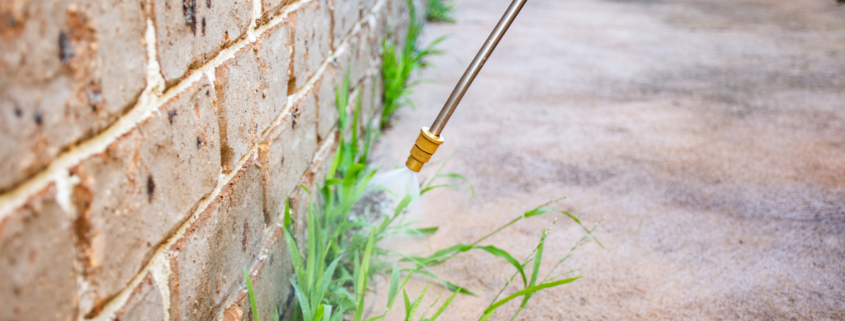







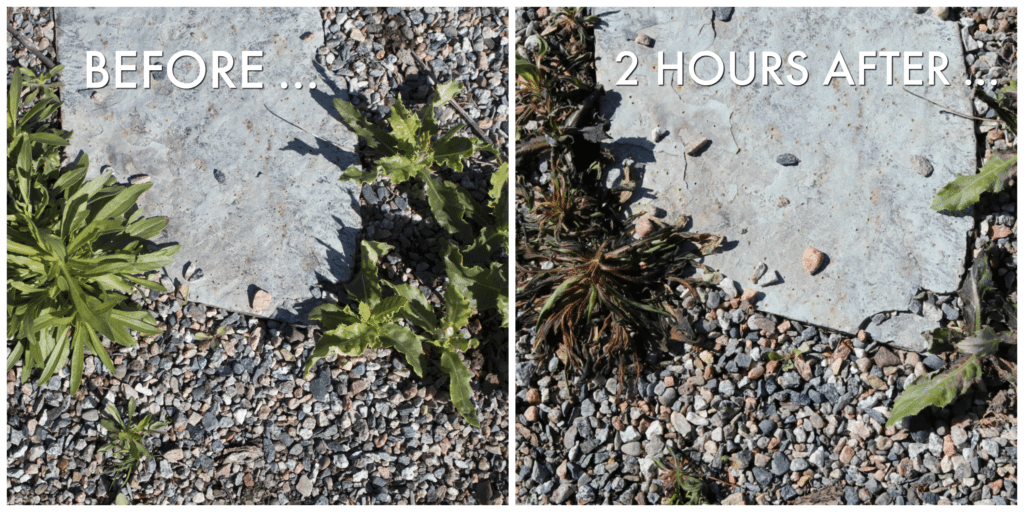








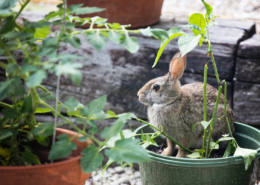
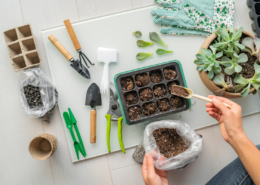
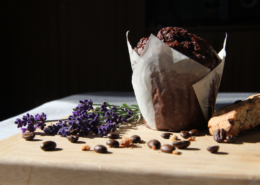

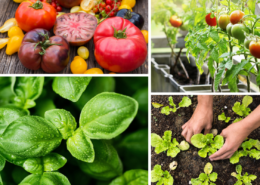

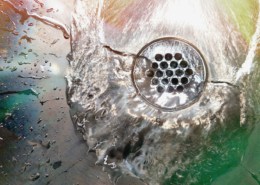
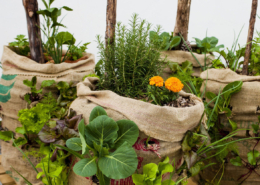
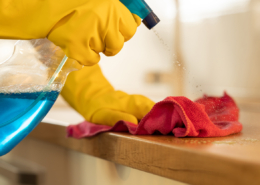


Seven points on this discussion.
(1) Salt is not exclusively sodium chloride. There are many salts. A salt is the reaction product of an acid with a base. Sodium chloride (table salt) is the product of hydrochloric acid and sodium hydroxide. Epsom salt (magnesium sulfate, MgSO4) is a true salt, the product of sulfuric acid and magnesium hydroxide.
(2) Sodium chloride (NaCl) does not poison the soil. All soils have varying quantities of sodium in them. Sodium does cause soils to become impervious to water by locking onto clay micelles and displacing calcium (Ca), causing the soil to become like concrete. However, the condition is not permanent unless you keep adding sodium every year. Even then you can cause a sodic soil to recover by adding gypsum (calcium sulfate, CaSO4), another salt, or sulfuric acid (H2SO4), which reacts with soil calcium to create gypsum, which displaces sodium. The sodium is released, becomes soluble and leaches away with either irrigation water or rain.
(3) When a salt is mixed with vinegar (acetic acid, CH3COOH), it dissociates into cations and anions. In the acid solution in vinegar (approx 5% to 6 % acetic acid) its reaction with plant tissues is a combination of an acid burn and a salt burn. The acid disrupts cell membranes. The salt causes cells to lose water. The combination is a rapid burn and dry down of treated foliage. You can use a lot of different salts to get this effect. The alkali metal salts (lithium [Li], sodium [Na], potassium [K], rubidium [Rb], cesium [Cs]) are the most toxic, followed by the alkaline earth metals (beryllium [Be], magnesium [Mg], calcium [Ca], strontium [Sr], barium [Ba]). Their salts increase in toxicity with molecular weight, i.e. sodium chloride (NaCl) is more toxic to plants than lithium chloride (LiCl), and potassium chloride (KCl) is more toxic than sodium chloride. Furthermore, their halide salts, particularly with fluorine (F) or chlorine (Cl) are the most toxic. Sulfate salts (SO4) are less toxic.
(4) Finally, if you want a really hot “salt & vinegar” weed killer, try vinegar and potassium chloride. Potassium chloride is found in “Light Table Salt” (not salt substitute) and is more expensive than ordinary table salt. However, fertilizer grade potassium chloride (murate of potash, 0-0-60 fertilizer) is cheaper than table salt. It is not as pure as table salt because there are insoluble components. But if you mix the murate of potash (KCl) with vinegar at the rate of 1 or 2 cups to a gallon of vinegar, you will get a very hot weed killer.
(5) With 0-0-60 murate of potash, there is a mineral component that is not readily soluble in water or even dilute acetic acid (vinegar). Therefore, when you mix the murate of potash with the vinegar stir vigorously until most of it is dissolved. Let is stand until the insoluble mineral component settles out. Then transfer the clear solution to your sprayer. Then add liquid detergent, and do not stir to avoid foaming.
(6) The effect on soil is negligible because unlike sodium, potassium is more reactive and does not cause the soil to become alkaline. Potassium is a plant nutrient, and once in the soil, it provides additional nutrients. If you check your garden fertilizer label, you will find that it contains potash (potassium) usually in the form of murate of potash (potassium chloride, KCl). Potassium, like nitrogen in fertilizer is quite water soluble and will readily leach out of the root zone of plants. So it must be replaced periodically.
(7) My experience with potassium chloride fertilizer showed me how toxic it can be. About 35 years ago, I was an agricultural consultant with a large, multi-state farmers cooperative association. An orchard owner in Washington, Utah, asked for a fertilizer recommendation after a soil test showed a potassium deficiency. I recommended about a quarter pound per tree applied in the drip zone of the trees. The “drip zone” of a tree is the area under the tree just where the branches of a tree end. It is the area where the maximum number of feeder roots exist closest to the soil surface.
The orchard owner, however, was a city guy who had never farmed anything before. He had moved to the rural area of Washington County to become a gentleman farmer, while he continued to commute by air to his office in Los Angeles. He had no idea where a tree’s drip zone was, so he placed the murate of potash against the trunks of his trees. A few months later, he called to say that his trees were all dead and had been killed by the fertilizer. When I investigated, I found that the murate of potash, still in crystalline form, in direct contact with the tree trunks. It had destroyed the bark, cambium and water conductive outer xylem of the trees. I explained where the drip zone was and that his lack of understanding had caused him to kill his own trees. We saved most of them by bridge grafting, and about half survived. But this demonstrated how phytotoxic concentrated potassium chloride is.
that weed killer doesn’t work on garlic mustard. Back to roundup for me.
I have poison ivy and other weeds growing on and around my fruit trees. If I use the second recipe would it kill my trees too?
How much vinegar do I use for the week killer? You gave the amounts for salt and soap but not the vinager. Thank you
That was the idea. Kill everything so that nothing will come back. I want to clear a patch of land to put a greenhouse on it. Weeds are now gone, but will come back. I want everything dead. Extinct. Gone. Never to return…
Try salt on your mouth.
According to my calculations, comparing cost of a gallon of white vinegar vs what it would cost for 4 tablespoons of RoundUp per gallon, RoundUp is CHEAPER. That being said, I refuse to use RoundUp because of what I perceive as dangers, to myself and family, future food crops, etc. And I just don’t like Monsanto.
A gallon of vinegar is about $3. An ounce of dish soap about $.25. How do you figure that compares?
We used to use RoundUp from time to time (before we knew better), and mixed it 3 oz per gallon. Walmart sells 64 oz of concentrate for 38.92. That makes it $1.82 / gal. For stubborn weeds we mixed it closer to 6 oz per gallon, which costs $3.65 per gallon. So the vinegar is in the ballpark, between those two extremes.
The only issue I have had with the vinegar mix is that I have to repeat the spraying often. It burns the foliage, and that does not guarantee that the root dies as well. For large areas, heavy black plastic in the hot sun works wonders!
I buy roundup for $10 gl.
It’s hard to compare the cost of Roundup with Roundup because it comes in many different concentrations. It is sold diluted ready to use (very expensive) and in different concentrations. If you buy at Wally World it will be more expensive than if you go to a farm supply store that sells to farmers.
p.s. …and the 20% acid vinegar is about $25 per gallon on Amazon
p.s. you don’t have to use 20%.
We used to use RoundUp from time to time (before we knew better), and
mixed it 3 oz per gallon. Walmart sells 64 oz of concentrate for 38.92.
That makes it $1.82 / gal. For stubborn weeds we mixed it closer to 6
oz per gallon, which costs $3.65 per gallon. So the vinegar is in the
ballpark, between those two extremes.
thanks
at least 20% if you want it to work.
I used RoundUp in my back yard and it made my dogs sick. I may use it in other areas of my yard, but never again around my pets. They eat the grass. I used this homemade version and it works and does not make my dogs sick.
DON’T EVER USE IT. PROVEN TO CAUSE CANCER
Yeah, but the FDA won’t tell us that, just like the artificial sweetener aspertane the FDA says is safe to consume, BS! (spelling on aspertane?)
Cause the FDA is loaded with the same ppl who own the companies that make all the poisons, including big pharma and big chem. More of the deep state swamp that Pres Trump is working to destroy.
Roundup is utter rubbish. Dandelions laugh at it. Brambles ignore it. Comfrey and borage their snoots at it…, spray it by accident on your bloody tomato plants though…
At least it works on something…
Works really well on your lungs and your children’s lungs too. Works a treat on pets!
Yep – causes cancer and digestive system damages. The 2nd is how it kills the bees. They are starting to be sued for huge amounts of money and ppl are winning.
I’ve had success every time against kudzu (scourge of the south) in Georgia. I found that mixing it per instruction necessary. Too weak, the plant doesn’t die thoroughly. Too strong, you kill the top only and the plant survives.
I have clover running wild around the base of a tree. Do you think the tree would be hurt if got sprayed when I the clover?
Dont kill the clover……….you should be rolling in it not killing it !
Mix? I’ve never mixed it with anything… just spray it on leaves.. 😀
There is another reason to not use RoundUp. My father got Roundup on his hands in April 2015. He broke out in an all body rash which persisted until July. Then his platelets dropped to single digits. The docs did blood transfusions and finally a bone marrow test. He had what they call a “blast crisis” leukemia condition and the prognosis was that he would not survive. He was dead a month later. There are class action suits against Monsanto about several different diseases users have contracted. But there is no effort around “wrongful death.” I urge anyone using RoundUp to stop; get rid of it. It’s poison and it will kill you.
I have seen something on television about a law firm that was advertising that it would represent people who became ill over using Roundup. I have used it for years; thank you for sharing your sad story about your father. It could save countless lives. God bless.
Sorry about your father, but far and away the most people who get this sort of bone marrow disease have no contact with Roundup. And millions of people get Roundup on their skin with no ill effects. Cause and effect can be very hard to establish.
Roundup literally says to use gloves. Literally.
And these jokers who say it doesn’t work….laughable. Utterly laughable.
There are instructions for safe use, follow them.
I call BS on this one sorry
I too am sorry to hear about your farther but I am sure that the instructions tell you to wear gloves when handling this product.
BS
This is all not true.
The class action suits are for people that developed conditions after using roundup for many years at great frequency.
Roundup on your fathers hands did not cause his illness. Glyphosate does not penetrate skin well at all. It also works on a protein pathway that does not affect humans. Glyphosate is extremely safe and has never been shown to cause any ill effects even for those of us who use it every day. It is sad that your father got sick, but spreading misinformation can also cost lives. Without the use of safe herbicides like Roundup, people in other countries will starve and die of undernourishment.
Gee. You know this for sure, do you? Read my post at the top about my cat. All her doctors agreed there was no way (young, spayed) she could have gotten the cancer other than by toxic agents. How about the man’s father having small cuts or open areas in his hands as entry points? How about just the pores in his skin? And how about people in other countries? How many of them sickened and died because of Roundup? You know this too? Don’t think so.
Anecdotal evidence is not actually evidence.
Vets have zero qualifications on safety/dangers of glyphosate. Fear and ignorance go hand in hand however
I have been spraying round up for 32 years for california public works. I have gotten round up splashed on me and even in my eyes a couple of times and have no health related problems caused by it. However I do believed its use should be limited and has caused many enviromental problems.
Will the salt leave a white residue? I have 150 year old cobble stones I don’t want white stains on!!
A residue of foolishness, certainly — if you’re speaking about using sodium salt on soil.
It does not stain. If it recrystallizes into a white film, wash it off.
I tried this weed killer but can’t get the salt to dissolve any ideas on how to do this.
warm water.
One question please. I plan to use this formula but am wondering if it will kill the grass as well. I am seeding a new area but would like to spray first. Will it have a negative effect on new seeds? thanks